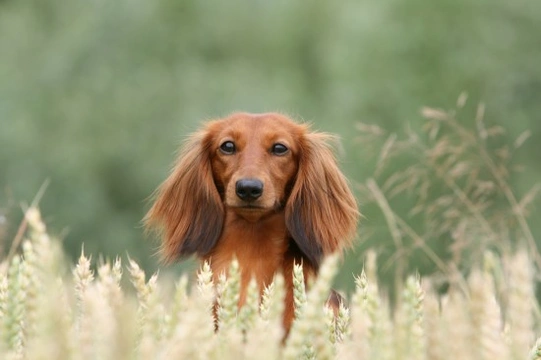
Fibre, grains and fillers - What does your dog need?
There are as many different opinions as to what makes up a good complete dog food as there are different brands and ranges available! Most dog foods contain some type of grain product such as rice, wheat or corn. Yet many dog owners are not actually sure if this is a good thing, and if dogs actually need to eat a portion of grain as part of their daily diet. Are fibre and grains such as these necessary, or are they simply used as fillers to bulk out the food and keep the cost down compared to providing a higher protein content? Most protein in dog food comes from meat, which is comparatively expensive to include in significant quantities in a pre-packaged pet food, and the main ingredient of every dog food should be meat. But what about the fibre, grains and fillers? Do dogs need them? Read on to learn more.
Good grains and products to avoid
Many grain products can be beneficial to your dog’s health, when fed in the appropriate quantities. Rice, corn, wheat and oats are all grains, and there are several other commonly included grains as well. All grains offer some nutritional benefit to dogs, and can help your dog to feel fuller for longer and aid with digestion.
However, highly processed grains should be avoided, as grains that are broken down into their component parts before adding to the food may well have limited nutritional benefit. A lot is said in terms of food for people about the benefit of eating whole grains, and the same is true for dogs!
Glucose, corn syrup and fructose are all by-products of grain processing, yet they provide little to no benefits for the dog eating them, and are often used to sweeten lower cost dog foods to make them more palatable.
Filler versus fibre
Fibre is a necessary part of every dog’s diet, in order to support the healthy functions of the digestive system and the digestibility of their food. A ratio of one to five percent fibre is normal for dog foods, and is the appropriate amount of fibre to keep your dog’s digestive system moving at the right rate!
Fibre from grains included in higher quantities than this is really acting as a filler in the dog food, or a cheap way of bulking out the food with less pricey ingredients that do not serve any other purpose.
Normally this is to be avoided, as it means that your dog’s food is not as nutritious as it might otherwise be. However, there are some situations when feeding a food with significantly more fibre may be beneficial to dogs:
- Obesity diets for overweight dogs are often higher in fibre, in order to reduce the caloric intake without leaving the dog hungry on his diet.
- Dogs with digestive disorders such as irritable bowel syndrome or dietary sensitivities may benefit from a high fibre diet too.
- Diets for diabetic dogs are also higher in fibre than regular diets, again, in order to support the unique dietary requirements of dogs with insulin imbalances.
In any of these circumstances, a diet containing between ten and fifteen percent fibre may be indicated, although for a healthy dog with no special dietary requirements, this would be considered too high.
Ingredients that contain fibre and contribute to the fibre content of your dog’s diet include:
- Rice
- Wheat
- Corn
- Oats
- Soybean
- Canola seed
- Cellulose
- Yucca
- Flax seed
Should you avoid wheat in your dog’s food?
A fairly significant number of mid range and premium dog foods proudly proclaim that they are “wheat free.” Understandably, seeing a statement like this on the packaging of any dog food might well lead the dog owner to believe that wheat is an undesirable product in dog food, and best avoided; without knowing why.
It has certainly become fashionable in recent years, both in human food and dog food, to reduce or remove wheat from the diet, substituting other grains in its place. But is this really necessary, and what is ”wrong” with wheat?
The answer to this question for most dogs (and people)! Is “nothing.” Wheat is a grain like any other, and for the healthy dog with no special dietary requirements, wheat can quite comfortably make up a component part of the diet.
However, wheat allergies are one of the most common types of allergies in dogs, which of course means that having wheat present in the food causes a problem for affected dogs! If your dog is prone to allergies or has a history of wheat allergies in their family tree, wheat might be best avoided. But for healthy dogs with no intolerances or allergies, wheat is absolutely fine, and there is no reason to avoid a food that contains wheat.
Wheat is one of the most commonly used fibre sources in dog food, as it is easy to obtain in bulk, a good source of slow-release energy, and combines well with meats to provide a good source of protein.
If you have any concerns about wheat in your dog’s diet, how much fibre they should be eating, or need any further advice on feeding, talk to your vet, who will be able to advise you or put you in touch with a specialist canine nutritionist who can!



